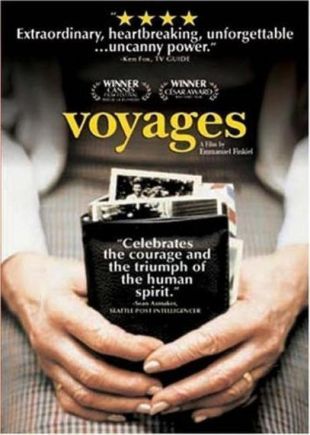This plaintive meditation on memory, identity, and the Holocaust has echoes of the mystical elusiveness of the movies of Krzysztof Kieslowski, for whom director Emmanuel Finkiel at one time worked as an assistant. A triptych of stories about three women whose lives were irrevocably changed by the Holocaust, Voyages depicts an entropic world where the onrush of modernity threatens to erode the significance of history and origin. Rootlessness is the norm; the movie is keenly aware of how the Holocaust and the Jewish diaspora have shaken traditional notions of home and family. In the movie, connections between family members are sought, only to prove tenuous, if not downright imaginary. As in Kieslowski's movies, coincidence -- the random interaction of unwitting strangers -- is a featured theme. Finkiel's version of chance is less sanguine, however. Unlike the cosmic, fated collisions in Kieslowski's work, Voyages portrays coincidence as devoid of logic. The movie suggests a universe that is absent a grand narrative, perhaps the only universe imaginable in the wake of the Holocaust. A hushed elegy, Voyages ultimately suggests that hope resides in humanity's resilience and its enduring ability to forge new ties to repair the ones that history has broken. In the face of overwhelming loss, Finkiel seems to say, the ties that will endure, or that will do for now at least, are the ones forged out of the kindness of strangers.

Voyages (1999)
Directed by Emmanuel Finkiel
Genres - Drama |
Sub-Genres - Ensemble Film |
Run Time - 110 min. |
Countries - France, Poland |
MPAA Rating - NR
Share on